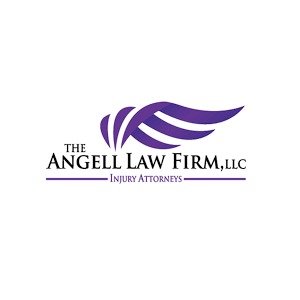Best Defamation Lawyers in Toccoa
Share your needs with us, get contacted by law firms.
Free. Takes 2 min.
List of the best lawyers in Toccoa, United States
About Defamation Law in Toccoa, United States
Defamation law in Toccoa, in the state of Georgia, United States, includes both slander (spoken defamation) and libel (written or published defamation). These laws are governed by precedence and the First Amendment of the U.S. Constitution protects freedom of speech, hence defamation cases often weigh the plaintiff's reputation against the defendant's rights to free speech. To prove defamation in Toccoa, one would need to show that a false statement about them was made, it injured their reputation, it was published to a third party and the statement was unprivileged.
Why You May Need a Lawyer
Understanding the nuances of the Defamation Law can be quite intricate, hence it's imperative to have professional legal assistance. Common situations where you might need a defamation lawyer include being accused of defamation or being a victim of it. If your reputation has been negatively impacted by someone's false statements or if you are being wrongfully accused of making false statements, it's crucial to procure legal help to safeguard your interests and navigate through the litigation process.
Local Laws Overview
In Toccoa, Georgia, the general statute of limitations for defamation is one year from when the defamatory statement is made. Furthermore, public figures or officials have to prove actual malice i.e., the statements were knowingly false, or made with reckless disregard for the truth. Georgia law also recognizes defamation per se, which is defamation that is so obviously harmful that the plaintiff need not prove any actual damages.
Frequently Asked Questions
What is the difference between libel and slander?
Libel involves the defamation of a person through written or printed words, pictures, or in any manner other than by spoken words or gestures. Slander, on the other hand, involves spoken defamatory statements.
Can opinions be defamatory?
Merely offensive or unpleasant statements are not defamatory. However, if the opinion implies a false assertion of fact, then it may be considered defamatory.
Can I file a defamation lawsuit for online comments?
Yes, defamatory statements made online, like on social media or in a blog comment, are treated similarly to statements made in other media such as print or television.
What kind of damages can I recover in a defamation lawsuit?
You may be able to recover compensation for damage to your reputation, personal humiliation, mental anguish, and suffering. In some cases, you may also recover punitive damages.
Can I sue for defamation if the statement was true?
Generally, truth is considered an absolute defense to defamation claims. If the defendant can prove that what they said or wrote was true, a defamation claim will not succeed.
Additional Resources
Local law libraries can provide comprehensive information on defamation law. Additionally, websites like the American Bar Association and the Georgia Bar Association provide resources on legal topics, including defamation. Consultation with a local defamation lawyer is highly recommended for detailed and personalized advice.
Next Steps
If you need assistance with a defamation issue, the first step would be to gather all relevant information including when, where, and how the alleged defamatory statement occurred. Then, contact a competent defamation lawyer in Toccoa who can guide you through the intricacies of your case and assess the merits of any potential lawsuit. Remember, time is of the essence given the statute of limitations on defamation claims in Georgia is one year.
Lawzana helps you find the best lawyers and law firms in Toccoa through a curated and pre-screened list of qualified legal professionals. Our platform offers rankings and detailed profiles of attorneys and law firms, allowing you to compare based on practice areas, including Defamation, experience, and client feedback.
Each profile includes a description of the firm's areas of practice, client reviews, team members and partners, year of establishment, spoken languages, office locations, contact information, social media presence, and any published articles or resources. Most firms on our platform speak English and are experienced in both local and international legal matters.
Get a quote from top-rated law firms in Toccoa, United States — quickly, securely, and without unnecessary hassle.
Disclaimer:
The information provided on this page is for general informational purposes only and does not constitute legal advice. While we strive to ensure the accuracy and relevance of the content, legal information may change over time, and interpretations of the law can vary. You should always consult with a qualified legal professional for advice specific to your situation.
We disclaim all liability for actions taken or not taken based on the content of this page. If you believe any information is incorrect or outdated, please contact us, and we will review and update it where appropriate.








